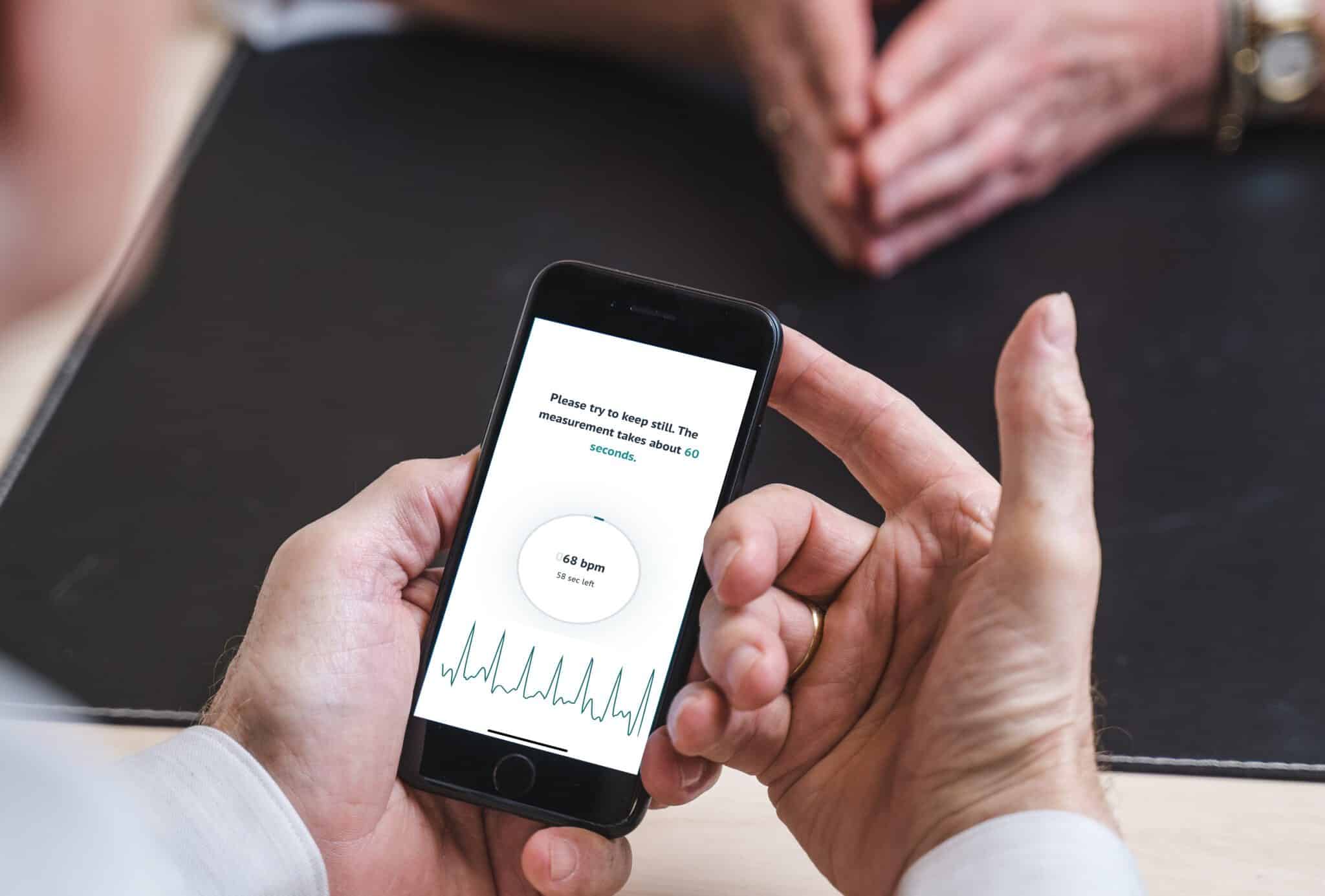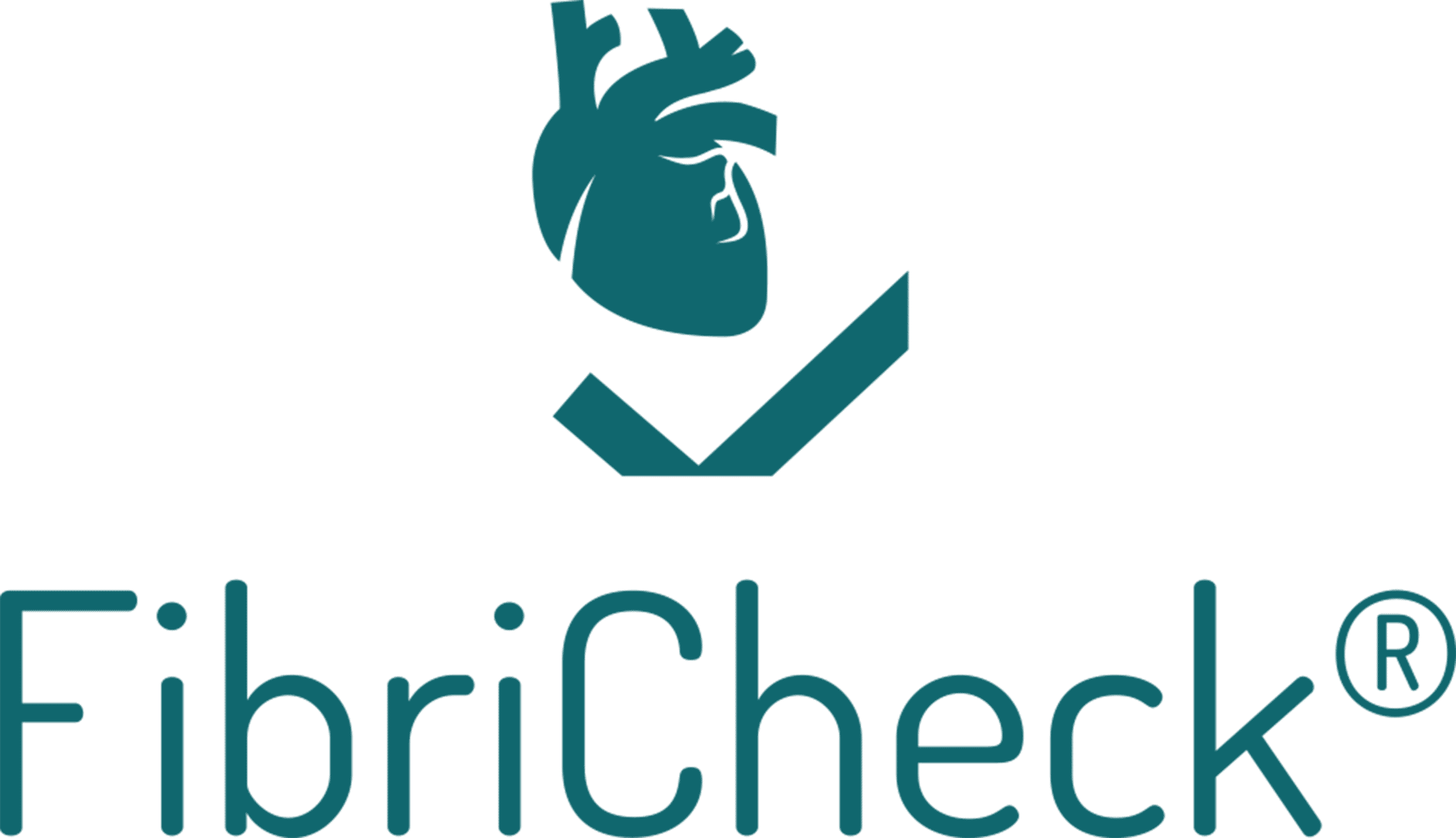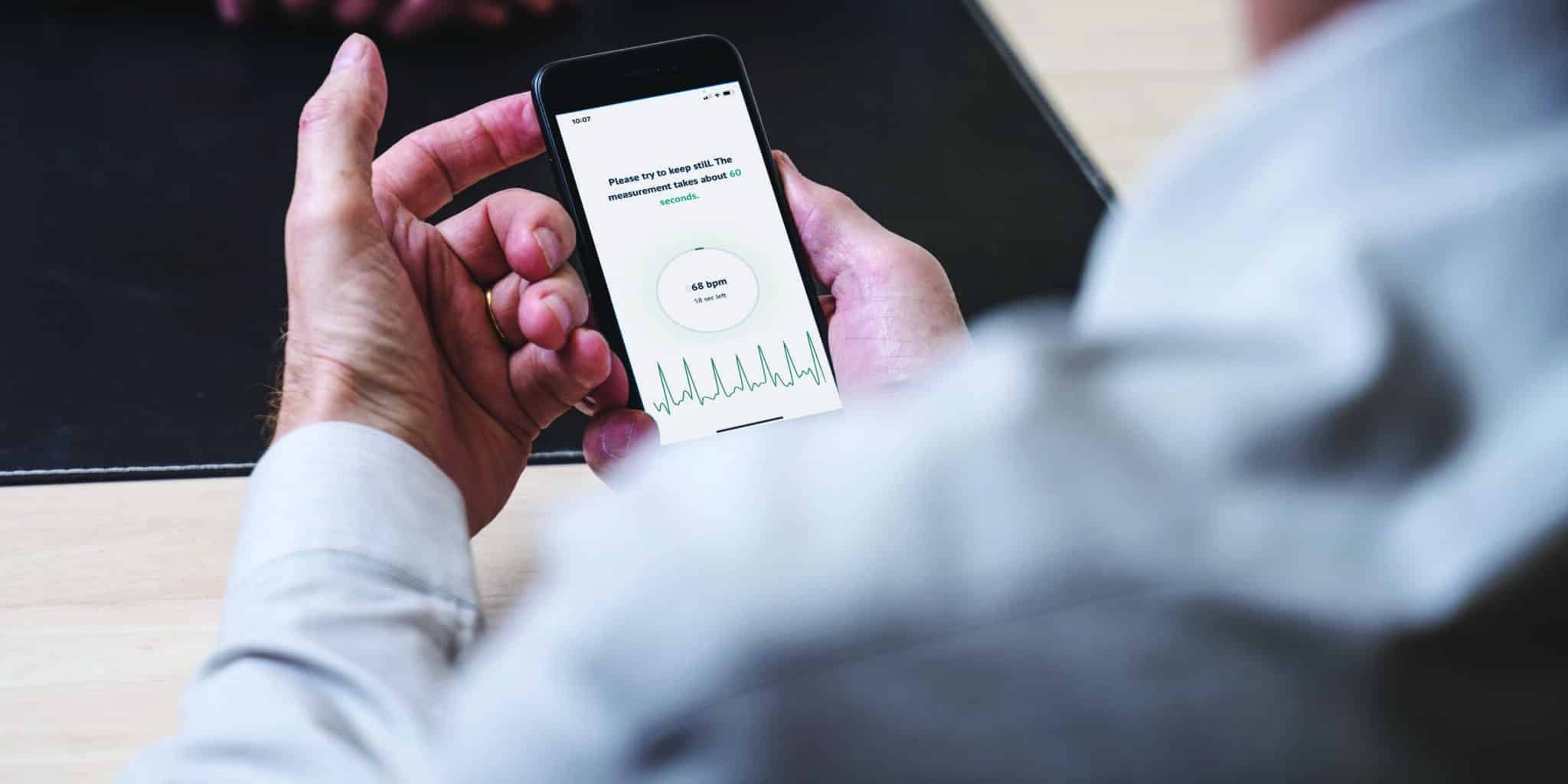> 1 Million
Users
43
Countries
> 2000
Physicians and Hospitals
What is FibriCheck?
FibriCheck is a medically certified detection and monitoring application that can be used to detect or monitor an irregular heart rhythm, such as atrial fibrillation. FibriCheck can be downloaded from the App Store or the Play Store, or can be prescribed by your physician. You can measure your heart rhythm by placing your finger on the camera of your smartphone. All measurements are analysed by a medically certified algorithm.


What is AF?
Atrial fibrillation or AF is a heart rhythm disorder that causes the heart to beat in an irregular and often accelerated manner. Atrial fibrillation causes 20% of all strokes. Getting diagnosed in time is of vital importance, as you can avoid serious complications if you get the appropriate treatment on time. 75% of all strokes can even be prevented by early detection and active follow-up.
What does FibriCheck offer you?

Patient empowerment
FibriCheck empowers you to keep track of your heart health. The app is user friendly and after each measurement you get a clear report that is easy to understand and that you can discuss further with your physician.

Peace of mind
With FibriCheck, you have immediate access to the results of your measurement. This way, you can monitor your heart rhythm at any time and feel reassured right away.

Insights by medical experts
FibriCheck provides you with the option to get a review of your results by our team of medical experts. This review comes with a detailed interpretation of your measurement.
How does the app work?
How can I start using the app?
There are two ways to get started with the app.
This can be through a subscription which you can obtain yourself or a prescription from your physician.
In Belgium and the Netherlands certain health insurance providers cover the use of FibriCheck.
You can find more information on this topic here.
With our subscriptions, anyone can use the app. You can choose between an Essential or a Premium plan based on your personal preferences. If you are a first time user, then you will be able to enjoy a free trial for the first three days.
A prescription can be provided by your physician, pharmacist, a hospital or a cardiologist by means of a QR-code or a link. By activating the link, you will be able to use all features of the app. All measurement results will also be shared with your doctor, hospital or cardiologist.

What people say about us
Very good! I had some fears about my heart because I have some family members with problems. This gave me some peace of mind.
This app is a must have for people with heart arrhythmia or heart rhythm disorders.
I have episodes at different times and usually when the doctor is closed so I can’t get an ECG done. This will be a great help in my diagnosis.
I thought I was having skipped heart beats, but the doctors weren’t able to catch them. I caught some on this app to show to my doctor. A month later I was diagnosed with PVC’s.
Very easy to use and gives prompt results. Good way to get any early signs of possible AF.
How did FibriCheck come into existence?
“In 2013 my father suffered his first stroke. He was barely 51 years old at the time. On vacation with his biker friends he suddenly fell down during his morning shower, half paralysed. A stroke, it turned out. Just like that, completely unexpected. Dad felt perfectly healthy at the time.”
Read more about this story on this page.


Frequently asked questions
PPG is the abbreviation of photopletysmography, which is a technology that focuses on the changes in blood volume in the smallest blood vessels that are present in your body, called the capillaries. With every heartbeat, the blood is pushed out of the heart into the blood vessels, causing them to briefly expand. Between two heartbeats, the diameter of the blood vessels reduces again. By lighting your fingertip for 60 seconds using the flashlight of your smartphone, the app measures the changes in blood flow in the capillaries, based on the amount of light that is reflected back into the camera. If there is a lot of blood present in the capillaries, then less light will be reflected, as opposed to capillaries with a low amount of blood present, which will reflect more light. By registering this reflection, PPG can detect your heart rhythm and any possible irregularities that may occur.
The electrocardiogram or ECG is an examination which is done under supervision of a physician which only takes a few minutes. 10 electrodes will be attached to your limbs and your chest to assess the electrical pulses that cause your heart to beat. If the ECG shows any abnormalities or if the doctor suspects that there might be a problem, then it may be decided that you need to undergo an exercise stress test. This is a test that requires you to ride a stationary bike or walk on a treadmill with the electrodes attached to your body. As ECG examinations only monitor your heart for a very short amount of time, some heart rhythm disorders may stay undetected.
You can read more on the differences between PPG and ECG on this page.
- Your smartphone needs to be compatible with the app. If you can find the app in the store, then it should be compatible with your smartphone.
- The FibriCheck app needs to be available in your country. You can find a list of all countries where the app is available here.
- No other device aside from a smartphone is required in order to use the app.
- You have tattooed fingers/wrists, as this may weaken the signal and interfere with the effectiveness of the device (depending on the device).
- You are under the age of 18
- You have a condition such as Parkinson’s disease or dementia that causes tremors or the inability to hold your hand still for at least 60 seconds. In this case, the device cannot process an accurate measurement.
- You have a condition such as perniosis or callus formation that causes a reduced blood flow in the fingertips. In this case, FibriCheck will not be able to detect the significant intensity variations induced by the blood flow.
- You have a disability which makes you unable to perform the measurements according to the instructions for use.
- You have a cardiac pacemaker, an ICD or other implanted electronic devices that control the natural heart rhythm.
You can find our FAQ page here.



